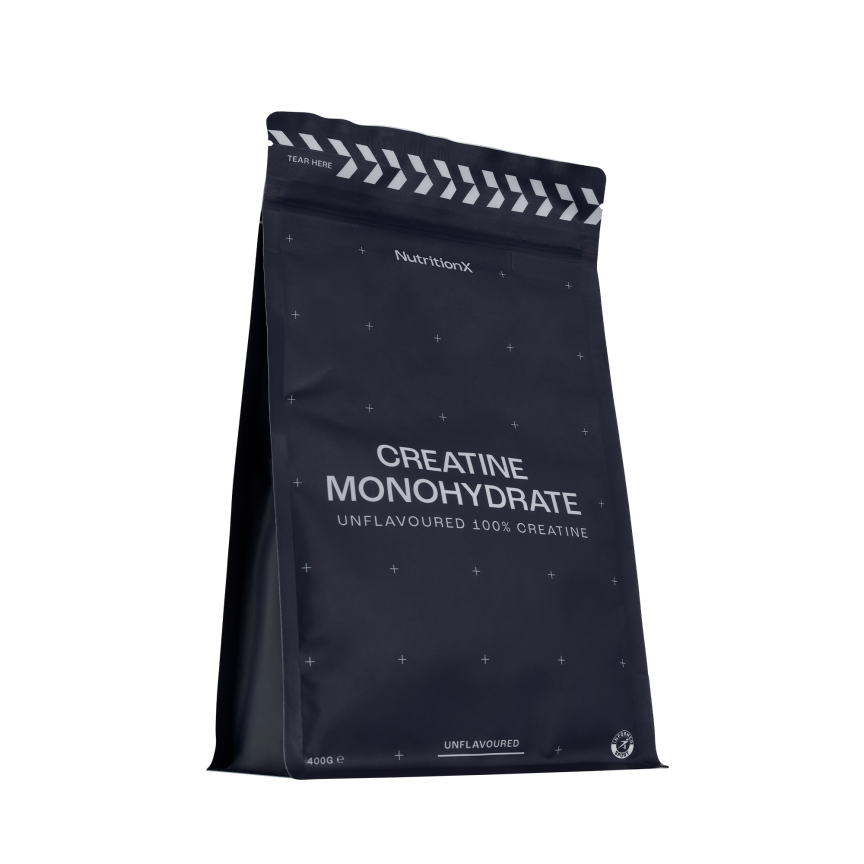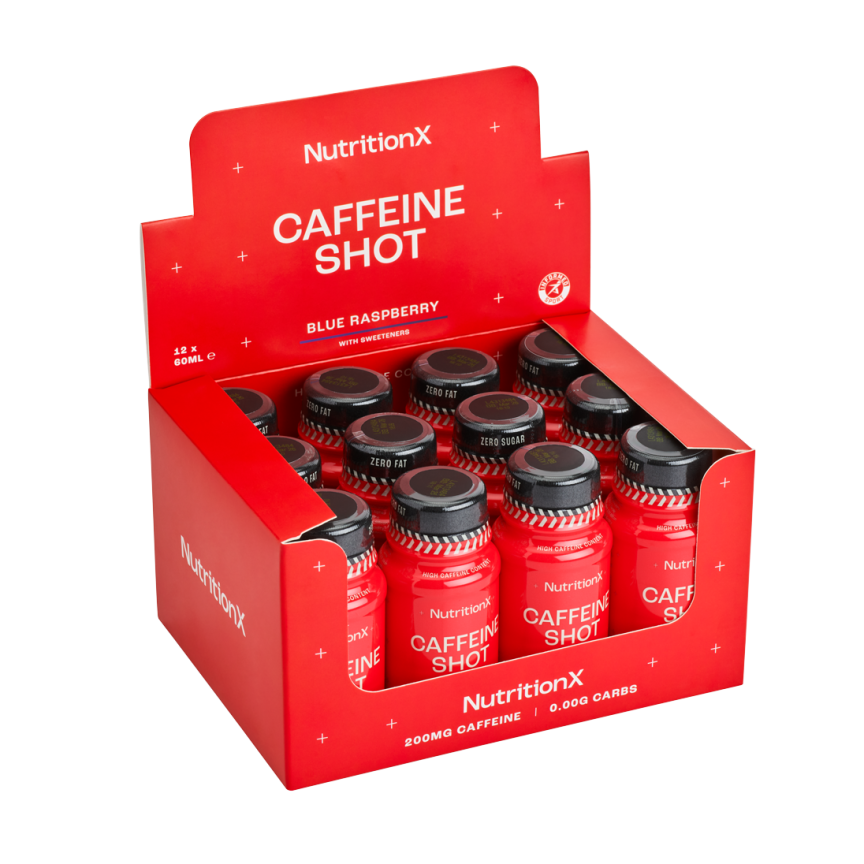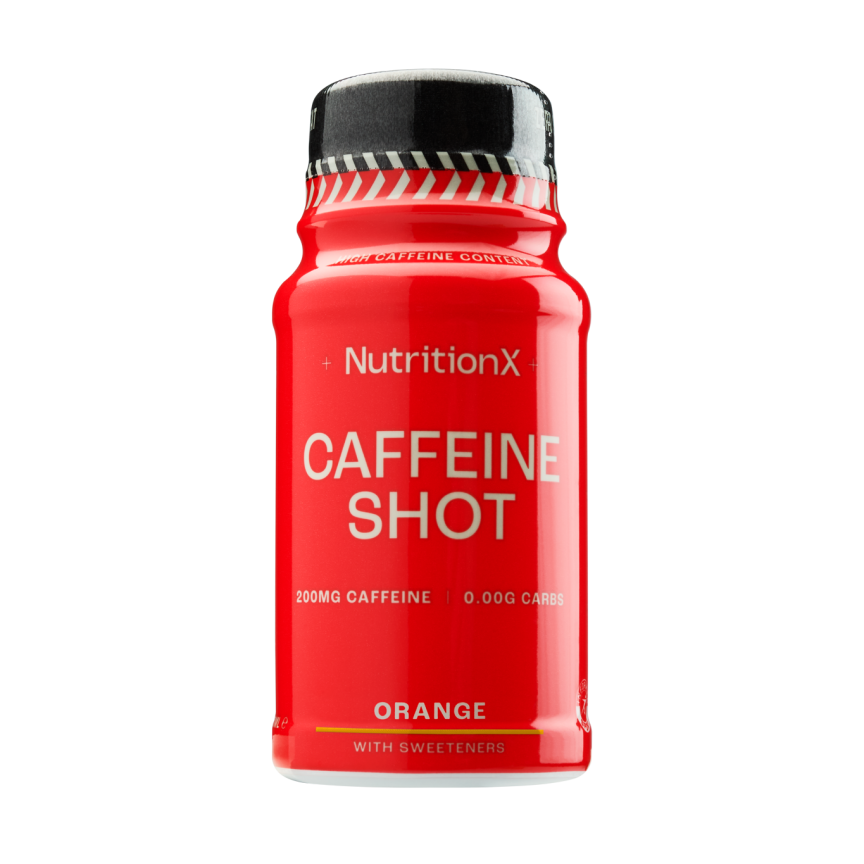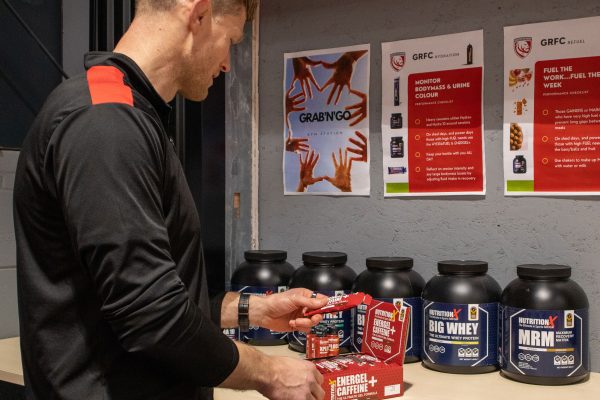What is pre-workout?
Pre-workout is a formulated drink or solution geared towards improving physical and mental performance during exercise. Common ingredients found in pre-workout supplements include a combination of stimulants (caffeine), amino acids (beta alanine, tyrosine, arginine) and other naturally-occurring chemicals like creatine.
Pre-workouts are typically consumed as energy shots, or as a powder to be mixed with water.
How does pre-workout work?
Taking a pre-workout supplement before exercise is designed to promote athletic performance by enhancing physical and mental capacity to work harder during that session. Depending on the ingredients, it’s generally recommended to take the supplement 15-45 minutes before training in order for the effects to be ready for the start of a session.
How pre-workout works in the body depends on the ingredients. To support intense training, pre-workouts typically contain a stimulant like caffeine. This is used to improve concentration, RPE (ratings of perceived exertion/effort) and fat oxidation levels; in essence, the rate at which fats are burned in the body.
Pre-workouts might also contain beta alanine to promote the buffering capacity of lactic acid for improved repeated high intensity performance.
Read our guide on how athletes should use caffeine to improve performance.
How long does pre workout last?
The main or noticeable effects of a pre-workout, will last for approx 60-90 minutes, but they could last up to several hours depending on individual responses and caffeine content.
Some people are non-responders to things like caffeine and creatine, however caffeine has a half-life of approx 5-6 hours, so could stay in your system for up to 12 hours. This means that high-strength caffeinated pre-workouts should be avoided in the afternoon, as this can disturb sleep and recovery.
What are the benefits of taking a pre workout?
Pre-workouts are designed to support athletic performance by enhancing physical and mental capacity to work harder during training or exercise.
Caffeine - typically included in a pre-workout - can enhance alertness and decision making, as well as rates of perceived exertion/ effort and fat oxidation levels.
If a pre-workout contains beta alanine or creatine, these can also help to improve repeated high-intensity athletic performance.
How much caffeine is in a pre-workout?
Caffeine content can range from 100-300mg in most energy supplements, with 200mg being a well recommended dose for most individuals.
The Nutrition X Xplode shot contains 200mg of caffeine alongside taurine, acetyl l-tyrosine and vitamin B6, formulated to boost energy levels, concentration and mental alertness.
Can you take a pre workout with creatine?
Yes, you can take a pre-workout and creatine together. Some pre-workouts may include creatine in small quantities, but will primarily contain a combination of stimulants (caffeine) and amino acids (beta alanine, tyrosine, arginine).
Creatine is most effective taken daily for 4 weeks to saturate muscle creatine stores. Taking 5g of a creatine monohydrate supplement before or after training could lead to more intense training. Read our ‘What is Creatine’ guide for more information on creatine monohydrate.
Can pre-workout be bad for you?
Every pre-workout will have an advisory warning to consult a medical professional before use. Most athletes are considered healthy and would generally be considered safe to take a pre-workout. However, people with pre-existing medical conditions i.e. heart arrhythmia - or that are pregnant - should avoid taking them all together.
Pre-workouts can be taken at night, however they will very likely result in disturbed sleep, especially if they contain caffeine.
Ideally, high-strength caffeinated pre-workouts should be avoided in the afternoon and evening. This is to avoid any impact to sleep quality and therefore recovery levels.










